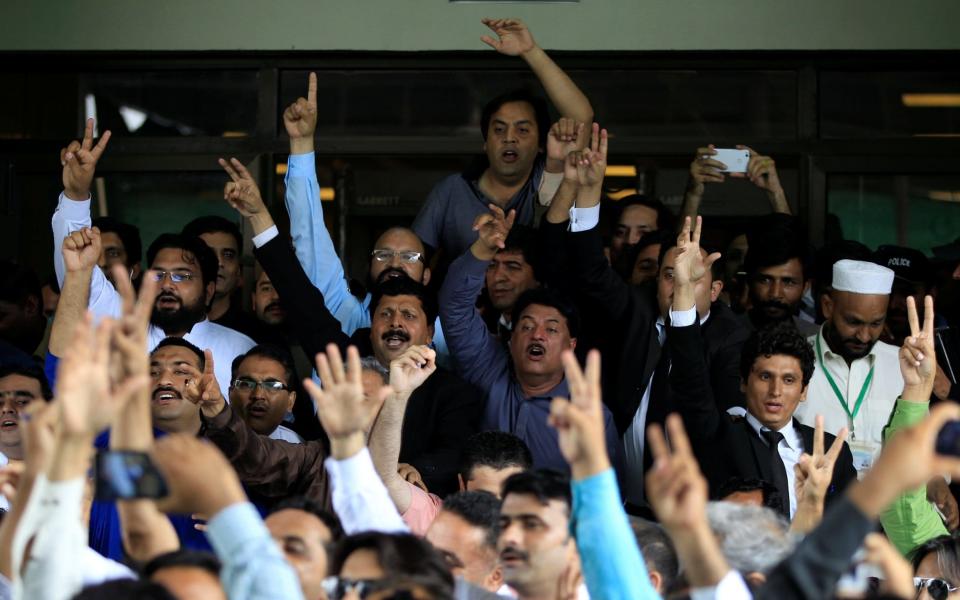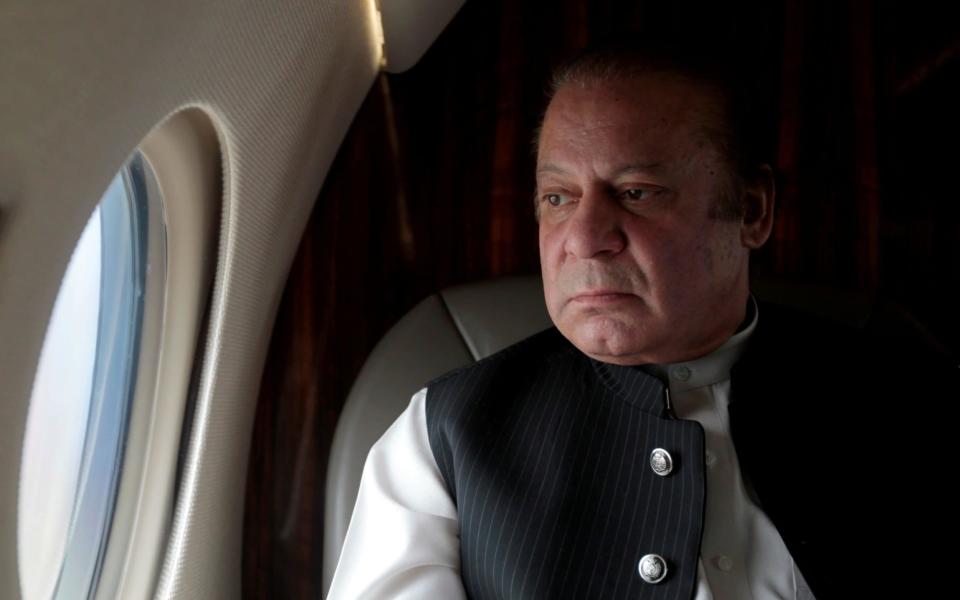Pakistan court disqualifies Prime Minister Nawaz Sharif over corruption allegations

Pakistan's prime minister faces a criminal trial after the country's supreme court removed removed him from power over a string of corruption allegations.
Nawaz Sharif officially resigned from the post after being "disqualified from holding office" in a unanimous verdict by a five-judge panel as the result of an investigation into his family wealth and assets, cutting short his third tenure in power.
The speaker of the National Assembly, Sardar Ayaz Sadiq, will assume the responsibility of the interim prime minister, according to reports in Pakistan.
The supreme court dismissed Mr Sharif after the judicial panel said his family could not account for its finances and opulent purchases of houses in the UK.

The court also ordered a criminal investigation against the prime minister and his family.
“Having furnished a false declaration under solvent information, Mian Nawaz Sharif is not honest”, judge Ejaz Afzal Khan said in court.
"He is no more eligible to be an honest member of the parliament and he ceases to be holding the office of prime minister."

Mr Sharif, 67, has always denied any wrongdoing and rejected graft claims as "trash", with his ruling Pakistan Muslim League (Nawaz) Party dismissing the investigation as politically motivated.
Mr Sharif and his allies have always alleged there was a conspiracy to unseat him.
His two previous stints in power were also cut short, including by a military coup in 1999, but he came back from exile to win a resounding victory in the 2013 general elections.
The move to dismiss Mr Sharif threatens fresh political turmoil after a period of relative stability in Pakistan, where no prime minister has completed a full term in power since independence from British colonial rule in 1947.

The ruling PML-N party, which has a majority in the parliament, is now expected to appoint a new prime minister - but no clear frontrunner has yet been identified.
Sharif's daughter Maryam was his presumptive political heir but she was also named in the supreme court judgement as having to face corruption charges, while Sharif's brother Shahbaz is only involved in politics at a regional level, as the chief minister of the province of Punjab.
Outside the dynasty, names bandied about as possible successors include Sadiq; Shahid Khaqan Abbasi, the oil minister; Khawaja Muhammad Asif, defence secretary; and Khurram Dastgir Khan, the commerce minister.
Mr Sharif's ouster brings back the spectre of the army calling the shots in Pakistani politics.

The country has oscillated between periods of military and government rule since independence.
Speaking after the verdict, Imran Khan, the former World Cup winning cricket captain and current opposition leader, said: "Pakistan has won today. Historically there have always been two kinds of laws prevailing in the country, one for the weak and poor and the other for the rich and powerful."
The corruption allegations stem from the release last year of 11.5 million secret documents from the Panamanian law firm Mossack Fonseca, detailing offshore dealings and tax avoidance schemes by some of the the planet’s wealthiest and powerful people.
Three of Sharif's four children - Maryam, and his sons Hasan and Hussein - were implicated in the papers. The central case by Pakistani prosecutors was that the family should explain exactly where the money needed to buy several high-end properties in London came from.

